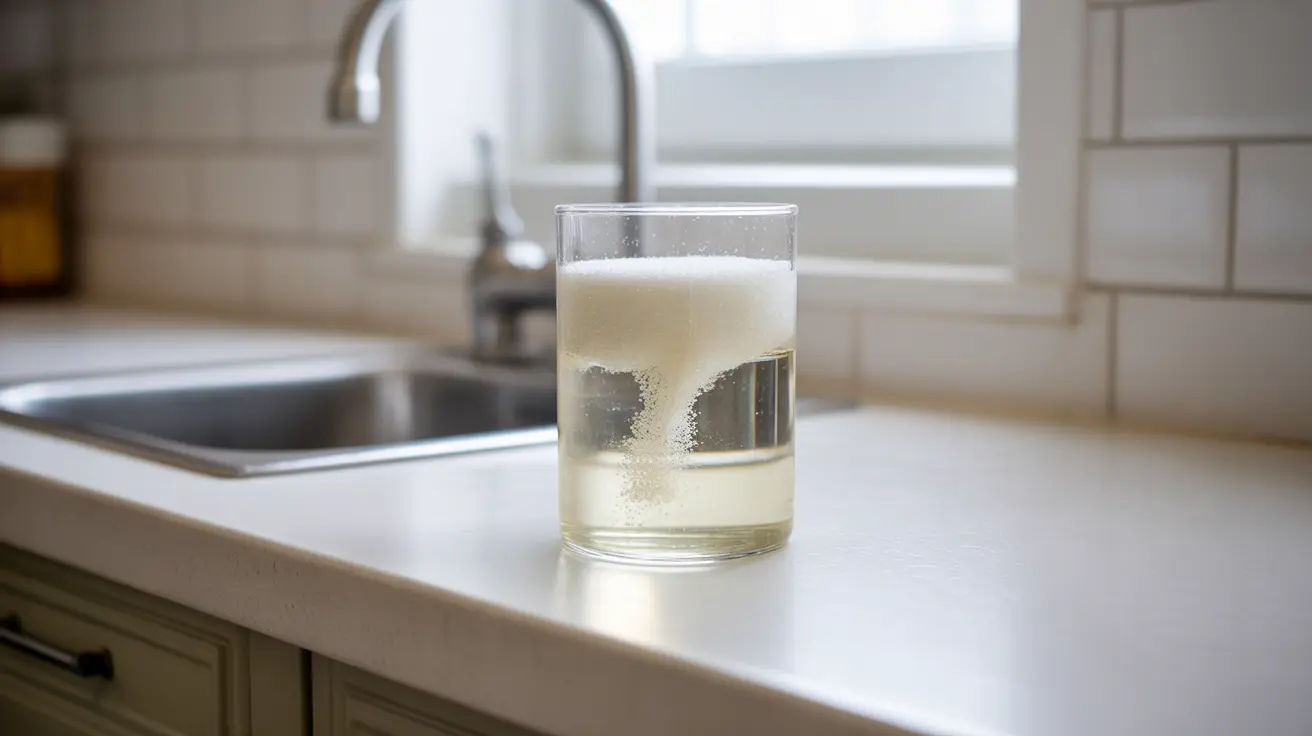Many individuals seeking to determine if they're pregnant may come across discussions about the sugar pregnancy test, a DIY method that has gained attention on social media and various online platforms. This article examines what this test involves, its claimed mechanisms, and most importantly, its reliability compared to scientifically validated pregnancy testing methods.
While the appeal of a simple, accessible home test using common household ingredients is understandable, it's crucial to understand the limitations and potential risks of relying on unproven testing methods for something as important as pregnancy detection.
What Is the Sugar Pregnancy Test?
The sugar pregnancy test is a DIY method that involves mixing urine with regular table sugar to supposedly detect pregnancy. Proponents claim that if the sugar clumps or changes consistency when mixed with urine, it indicates pregnancy. However, this method has no scientific basis and isn't supported by medical research.
How the Sugar Test Is Performed
The typical process involves placing a few tablespoons of white sugar in a clean container and adding a small amount of morning urine. According to online sources, users should observe the sugar's reaction after several minutes to a few hours. However, any changes in the sugar's appearance can be attributed to natural chemical reactions between sugar and liquid, regardless of pregnancy status.
Scientific Analysis of the Sugar Test Method
From a medical perspective, there is no scientific evidence supporting the sugar pregnancy test's ability to detect pregnancy hormones. Human Chorionic Gonadotropin (hCG), the hormone that indicates pregnancy, cannot be reliably detected through a reaction with sugar. Any observed changes in the sugar's appearance are likely due to dissolution processes and have no correlation with pregnancy status.
Reliable Pregnancy Testing Methods
Instead of relying on unproven methods, healthcare professionals recommend the following scientifically validated approaches for detecting pregnancy:
- Over-the-counter pregnancy tests that detect hCG in urine
- Blood tests conducted at medical facilities
- Digital pregnancy tests with clear readouts
- First morning urine tests for optimal accuracy
When to Take a Pregnancy Test
For the most reliable results, it's recommended to wait until after a missed period to take a pregnancy test. Early morning urine typically contains the highest concentration of hCG, making it the ideal time for testing. If you receive a positive result, schedule an appointment with a healthcare provider for confirmation.
Risks of Relying on Unproven Methods
Depending on unreliable testing methods like the sugar pregnancy test can lead to delayed medical care, missed prenatal care opportunities, or false reassurance. It's essential to use medically approved testing methods and seek proper healthcare guidance when pregnancy is suspected.
Frequently Asked Questions
What is the sugar pregnancy test and how is it supposed to work? The sugar pregnancy test is an unproven DIY method where urine is mixed with regular table sugar. According to folklore, if the sugar clumps or changes consistency, it supposedly indicates pregnancy. However, this method has no scientific validity.
Can the sugar pregnancy test reliably detect pregnancy compared to standard home pregnancy tests? No, the sugar pregnancy test cannot reliably detect pregnancy. Standard home pregnancy tests are scientifically proven to detect pregnancy hormones (hCG) and are the recommended method for at-home pregnancy testing.
Why does the sugar pregnancy test cause sugar to clump or dissolve, and does this really indicate pregnancy? Sugar's reaction with urine is simply a natural chemical process of dissolution and has nothing to do with pregnancy hormones. Any clumping or dissolving occurs regardless of pregnancy status and cannot indicate pregnancy.
What are scientifically proven methods for detecting pregnancy at home? Scientifically proven methods include over-the-counter urine pregnancy tests that detect hCG hormones. These tests are regulated, reliable, and widely available at pharmacies and stores.
When should I see a doctor to confirm a pregnancy after getting a positive or negative result on a home test? If you get a positive result on a home pregnancy test, schedule an appointment with a healthcare provider for confirmation. If you get a negative result but still miss your period or have pregnancy symptoms, wait a few days and retest, or consult your healthcare provider for guidance.




